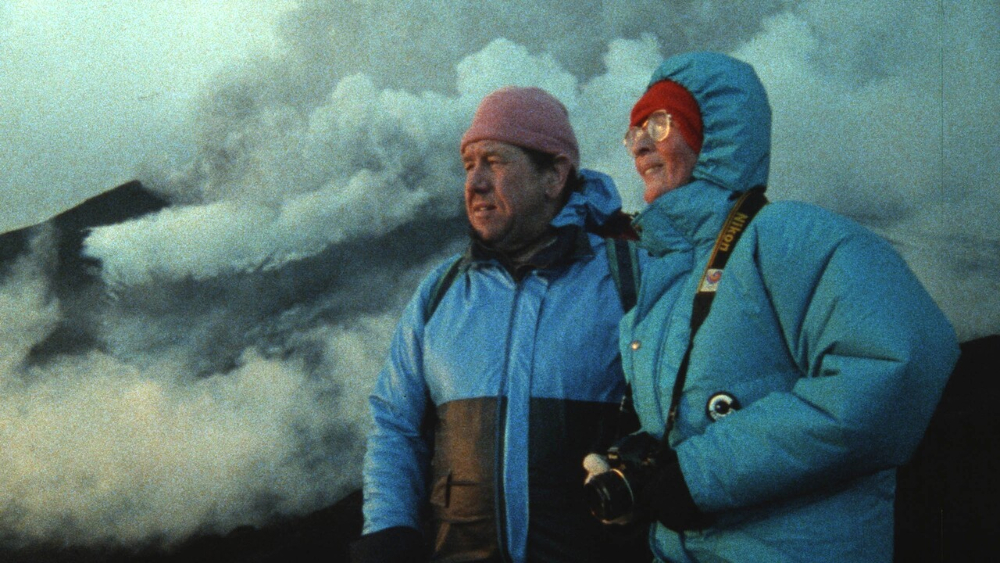In 1942, when the Academy Award for Best Documentary Feature was first established, 25 movies were nominated and four received the Oscar. Back then, the award was a part of the Academy’s effort to support war-related movies, with propaganda films and morale-boosting documentaries from studios such as Disney and directors like Frank Capra occupying a bulk of the Academy’s time back then.
Since then, the category has had as few as two nominees per year (settling on five for good in 1969) and it has also undergone a number of changes, including limiting voting to the Documentary branch of the Academy and requiring certification that one has watched all of the nominees prior to voting. Today, voting for the category is open to all Academy members, with winners reflecting more popular subject matters that can be easily digested.
Ironically, “take an unpopular political stand” documentaries have not done well ever since Michael Moore went on stage after winning the Oscar for Bowling for Columbine to declare the American invasion of Iraq to be criminal. The one exception may be Citizenfour, Laura Poitras‘ documentary about Edward Snowden, which won in 2014. That’s especially notable this year since Poitras is nominated once again for All the Beauty and the Bloodshed.
Read on for our capsule reviews of the five nominees for Best Documentary Feature followed by a quick handicap of their Oscar chances:
All that Breathes – This little-known documentary, which won the Grand Jury Prize at Sundance, follows two brothers in New Delhi who care for birds that have fallen from the sky, and as such, it’s the quietest of the nominated films, though it may also be the most poignant.
Brothers Saud and Nadeem run a clinic that has cared for over 20,000 black kites in the last 20 years, as their numbers are threatened by changing ecological conditions and unwanted human intervention. Aided by a quiet, melodic score and aesthetically sweeping and beautiful cinematography, director Shaunak Sen tells a story of triumph over adversity, of perseverance, and of the interconnected and interdependent nature not just of ecological systems, but of human beings with each other.
Though the brothers’ story feels relatively small compared to other documentaries about bettering the world, their emotional triumph seems large, in part because it is so quiet. Along the way, Sen’s perspicacious camera captures the bustle of modern urban living and juxtaposes it, at least implicitly, with the methodical approach of the brothers in their search for kindness. It is a “here is my small corner of the world” documentary if there ever was one, but one with a story that is clamoring to be heard outside its confined walls.
Grade: A-
All the Beauty and the Bloodshed – Oscar winner Laura Poitras is back with this documentary that won the Golden Lion at Venice and that at some point was considered a potential Best Picture contender. In the film, Poitras follows renowned photographer Nan Goldwin in her quest to bring justice to the Sackler family for their role in America’s ongoing opioid crisis.
The story is about Goldwin and the suffering that she experiences as part of her artistic inspiration — her confused sexuality, her gritty aesthetic, and her hunger for a different perspective that is both real and imagined. But it is also about Goldwin’s angered pursuit of justice against one of the most criminal corporate enterprises in recent history. In the end, All the Beauty and the Bloodshed is a triumph because Poitras once more achieves what few documentarians can as she does — let the subject become the storyteller, stepping entirely out of the way.
By interspersing pieces of Goldwin’s work with pieces of her advocacy, Poitras draws a subtle but powerful link between the two, urging the audience to understand the similarities between art and activism and to think of art as a medium of changing the world just like any other. And the story is as brutal as Goldwin’s troubled youth, considering the thoroughly unsatisfactory conclusion to which the story of the Sacklers leads, even if all that was somehow achieved, often miraculously so, is surely something to be admired.
Grade: A

Fire of Love – Documentarian Sara Dosa brings us this Sundance documentary about volcanologists Katia and Maurice Krafft, who died tragically during a volcanic explosion in the early 1990s. Relying almost exclusively on archival footage, Dosa tells a layered story about the loving relationship between the two scientists and how it was slowly forged amongst the fires of volcanoes.
Impressively, she captures their obsessive nature over the study of those beast-like mountains that live ominously at the edge of human civilization. And yet, despite the fiery passion that defines her subject matter, this feels like a story better suited for the short film category than anything else. In the end, the Kraffts’ pursuit feels too much their own, and the lessons imparted about volcanoes cease to be that impressive after halfway through the runtime. The footage depicts real lava, but the fire quickly burns out in this one.
Grade: B-
A House Made of Splinters – This Danish film about a special orphanage in eastern Ukraine, miles away from war-torn parts of the country, is one of the year’s most harrowing documentaries. The story is not at all about war in Ukraine, a topic that recedes mostly to the background and that does not motivate much if any of the proceedings. Instead, these children are the products of broken homes, broken families, alcoholic parents, and otherwise impossible environments.
The orphanage at the heart of the story, though, is a sort of traffic routing station, where kids go to stay up to one month while the state decides whether to try to remove their parental rights and then place them into the foster system. But some kids are in and out, and many come as younger teenagers or at least older toddlers. Many are painfully aware of being unwanted and remain so for most of the proceedings.
However, the film is mostly a missed opportunity, as it could have focused at least in equal part on the incredible women who ran this institution and who suffer quietly to try to ease the burden on the infants who are faring worse. But by focusing almost exclusively on the psychological toll that these circumstances create on the youngsters, A House Made of Splinters betrays a somewhat manipulative motivation rather than an informative one, and it is only because the kids in the film are so sympathetic that the movie does not fall completely off the rails.
Grade: B-
Navalny – Documentarian Daniel Roher (Once Were Brothers) returned to the festival circuit with this Sundance favorite about the assassination attempt on the eponymous Russian opposition leader, Aleksei Navalny. The film follows an incredible sleuthing story as Navalny and his allies try to and eventually do uncover who was behind the mysterious poison attack that almost ended his life in August 2020.
The movie is, if nothing else, informative to those who did not follow this story in the news, and one incredible moment of revelation at the core of the timeline makes it worth the price of admission. But, as interesting as Navalny is, make no mistake about it, this is a political propaganda piece cloaked as investigative journalism. Navalny, for understandable reasons, has political points to make and a very large sense of self/ego. A documentary about an attempt on his life and the people behind it is the perfect soapbox for his purposes.
As much as one may abhor authoritarian regimes and their perpetrators, Navalny can become difficult to fully admire as a human being, considering his own self-aggrandizement. And, as interesting as the story is, it is heavy on supposition, conjecture, and associational guilt more than anything else. While the protagonist’s feats are certainly impressive, the film at times feels like it’s caught between two warring factions in the most unwelcome of ways.
Grade: B

Oscar Handicap: Much like Animated Feature Film and International Feature Film, Best Documentary Feature should not be hard to handicap on your Oscar ballot. Yes, Fire of Love won the Directors Guild of America, but Navalny has won almost every other prize that counts, from the audience award at Sundance, to the BAFTA and the PGA.
Precursors aside, it’s hard to see anything else winning considering the subject matter. Fire of Love is easily out, as it touches on a story that is too small and too specific. All that Breathes would have had a chance some years, at least as a way to reward the do-gooders at the heart of the story. A House Made of Splinters nominally touches upon the Ukraine War, but is not about that at all, and is ultimately about too much, endless suffering with little redemption storylines, something a prerequisite. And as popular as All the Beauty has been in some corners, surely the graphic, sexualized art at the heart of the story and the solipsistic nature of this art will detract from it. Never mind that the subject matter of Navalny is clearly almost as egomaniacal as his on-screen nemesis. Navalny is about Russia at the time of the one-year anniversary of the Ukraine war. It feels like the easy “yellow and blue stripe” flag market for the Academy to set down. It takes a stand against Russia, another political Academy favorite after the prior administration. And it has sufficient indignation without being too controversial within American shores. Though the deserving winner is, in my view, the Poitras piece, I expect this is an easy call for Navalny.
Frankly, the bigger story in this category is that by far the most interesting and breathtaking documentary this year — Good Night Oppy, about the Mars rovers — did not even make the shortlist.
Will Win: Navalny
Could Win: All the Beauty and the Bloodshed
Should Have Been Nominated: Good Night Oppy
The 95th Academy Awards will be held on March 12. Click here for a full list of this year’s Oscar nominees.





